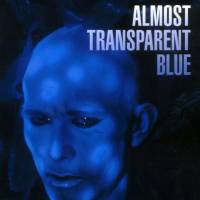Life around a U.S. base camp in Kanagawa in the 1970s may have mirrored certain aspects of American life, but they were often the most self-destructive elements. Set along the urban border between a military camp and Japan proper, the violent milieu of Ryu Murukami's short novel "Almost Transparent Blue" is a place where servicemen shoot up on Philopon and morphine, where cheap rented rooms reek of unwashed dishes, overripe fruit, cigarettes and casual sex. In the service bars near the base, quarrels erupt, brawls lead to stabbings.
Almost Transparent Blue, by Ryu Murakami Translated by Nancy Andrew.
Kodansha International, Fiction.
Instead of plot, what we have is an ongoing dialog between people entranced by common addictions, hallucinations, panic attacks and a craving for carnal relations that transcend racial boundaries. There are no defining central characters, only distinctive peripheral figures such as eponymously named narrator, Ryu, the enigmatic Lilly and a base camp habitué, a male character nicknamed Okinawa.
Even when inhabiting a world where the cultural references are largely from the West, the writing remains Japanese. Withdrawing from the commotion of music at a gig, Ryu finds himself walking "around the part of the fan-shaped amphitheater farthest from the stage, along the last row of seats, thinking it was just like summer, when all the cicadas are buzzing together in a forest during the morning."
Almost 40 years on, the book is as powerful today as it was when published.
Each week "Essentials" introduces a work of fiction that should be on the bookshelf of any Japanophile.



















With your current subscription plan you can comment on stories. However, before writing your first comment, please create a display name in the Profile section of your subscriber account page.